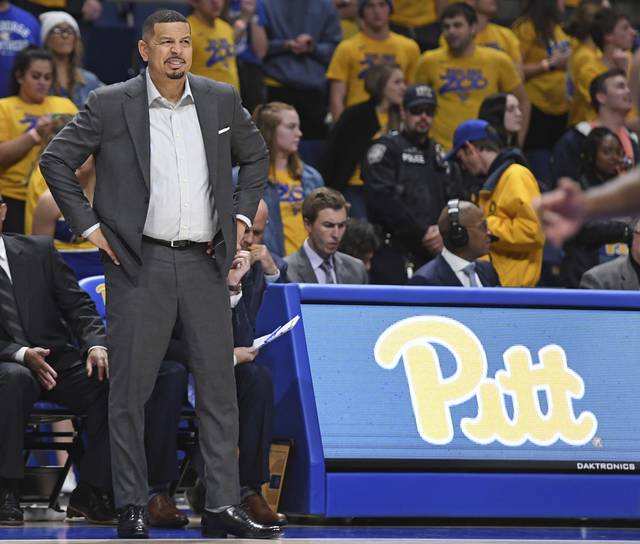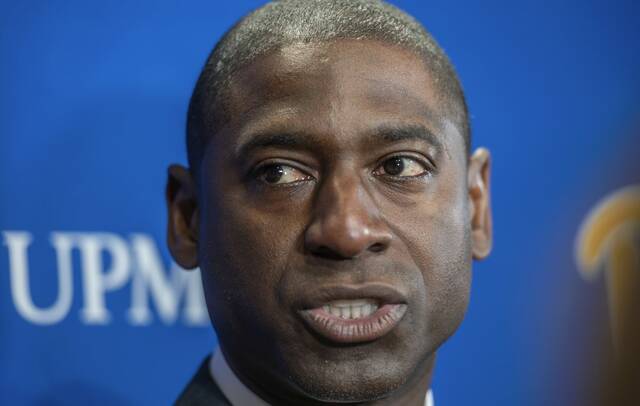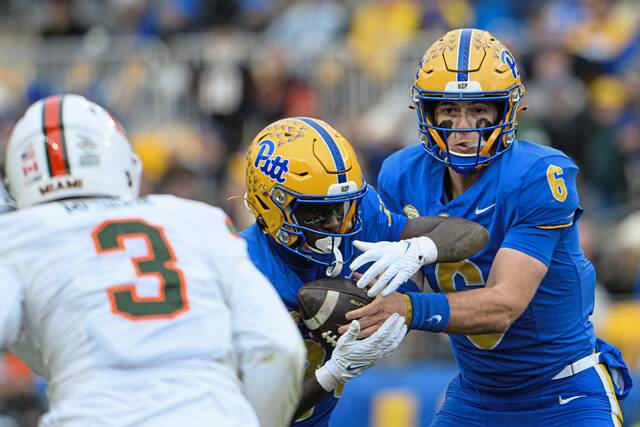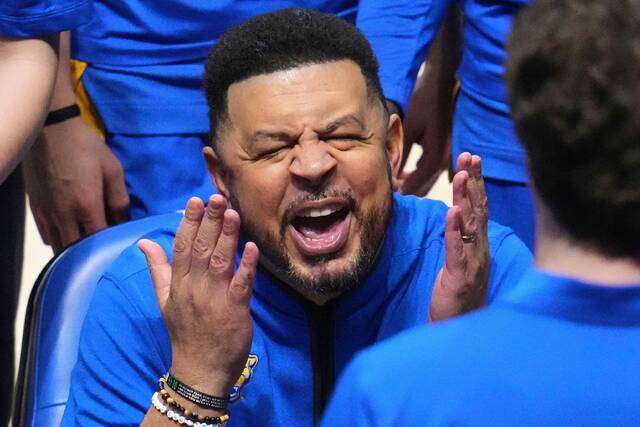Jeff Capel compares an athlete’s body to an engine.
For the engine to run at peak efficiency, it needs the best fuel.
The body functions the same way when it comes to nutrition.
As coach of the Pitt men’s basketball team, Capel encourages his players to make healthy choices to make sure their bodies are always running at peak efficiency.
“We try to teach them healthy choices so they can develop habits, hopefully, that will last for them throughout their lives,” Capel said on this week’s Greater Pittsburgh Community Food Bank’s Food Podcast on the TribLive Podcast Network.
Capel said many players he has coached in stops at Duke, VCU, Oklahoma and now Pitt struggled with healthy eating habits before they reached the college level.
Whether it was a lack of options for meals and snacks or not managing the amount of food they were eating, he estimated 95% of those players had no idea how important nutrition was to their athletic pursuits.
“One of the things we try to do at our level here is talk to our guys and teach them about food,” Capel said. “They just put whatever is on their plate or whatever they can get into their bodies.
“To a certain extent, I understand that. You have kids from different socioeconomic backgrounds and all different things like that.”
Pitt men’s basketball relies on a nutritionist and strength and conditioning coaches to help guide its players through a transition to a healthier lifestyle.
The NCAA passed a rule before the 2014-15 season that allowed programs to provide student-athletes with whatever foods they deemed necessary, clearing a path to healthier eating.
“We’re able to have someone to talk to them about healthy choices, teach them about healthy choices,” Capel said. “Our strength coach is able to talk to them and monitor them. We’re able to provide food for them, whether it is in the locker room in a post-practice meal or sometimes snacks at night.”
As a freshman player at Duke, the 1997 grad recalls grabbing a box of doughnut holes and an orange juice at a mini-mart on the way to class each day. He’s pleased to see how much more emphasis has been placed on teaching student-athletes healthier eating habits.
“I wish I had what these young people have now, and I wish it was more prevalent on college campuses and athletic departments and even on television,” he said. “It wasn’t talked about a lot. Now, if you look at society in general, people are talking about lifestyle and healthy choices.”
Pitt has nutritionists who work with all the athletic programs, and Haley Sewell is assigned to the men’s basketball team.
But the nutrition program only works if everyone buys in, especially the coaches.
“If you can get healthy options, high in protein, low in fat, vegetables, those are very important,” Capel said. “Try and stay away from sodas and stuff with high sugar because as an athlete, you are spending a lot of energy.
“You want to be putting healthy stuff in your body to help you maintain a high level of energy and replenish.”








